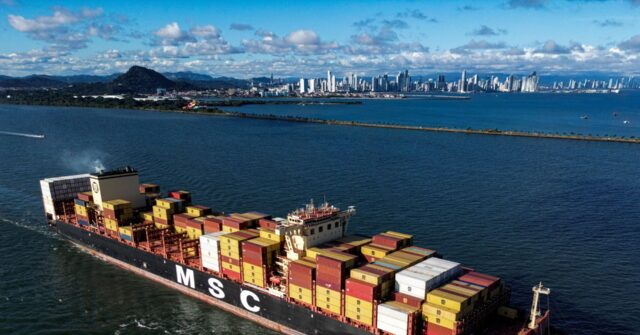In a series of posts on Truth Social, President-elect Donald Trump expressed a bold stance regarding the Panama Canal, essential for U.S. commerce and military deployment. Citing it as a “vital national asset,” Trump criticized Panama for allegedly charging exorbitant transit fees that unfairly burden the United States, the canal’s primary user, accounting for over 70% of transits. He emphasized the canal’s significance in facilitating quick naval movement between the Atlantic and Pacific oceans and reducing shipping times for American ports. Highlighting the immense sacrifice made by American lives during its construction—specifically mentioning the tragic loss of 38,000 workers due to mosquito-borne diseases—Trump underscored the U.S. investment in the canal as a testament to its enduring value.
Trump invoked former President Theodore Roosevelt’s vision during the canal’s construction, reaffirming the link between naval power and trade. He condemned former President Jimmy Carter’s decision to relinquish control of the canal to Panama, labeling it a “foolish” act made for only one dollar. According to Trump, the transfer was meant for Panama to manage the canal, not others, particularly China, thereby ensuring that the canal would not become a strategic liability for the United States. By suggesting that unacceptable charging practices for U.S. naval and commercial access to the canal were in play, Trump painted a picture of betrayal against the backdrop of historical U.S.-Panamanian relations.
Asserting that the charging of excessive fees represents a “rip-off” of American interests, Trump declared that such practices would “immediately stop.” He argued that the U.S. had historically been generous to Panama, which, in his view, should not be exploited for financial gain at America’s expense. This rhetoric was aligned with a broader theme of “America First,” a principle that characterized much of Trump’s political discourse. By threatening to retake the canal if these issues are not addressed, Trump positioned himself as a defender of American resources and interests, thereby promising a more aggressive stance in foreign relations.
In a subsequent post, Trump reinforced the notion that the U.S. would never permit the canal to fall into “wrong hands,” indicating a wary vigilance towards foreign influences, particularly China. He articulated that the canal was initially granted to Panama as a “token of cooperation” between the two nations, conveying a sense of entitlement regarding its operation and management. By implying that a deviation from the principles of trust established during the transfer could lead to a demand for its return, Trump reinforced a narrative of accountability, suggesting that the U.S. should intervene if it felt that the moral and legal foundations of the original agreement were being undermined.
Moreover, Trump’s remarks reflect a broader discomfort with international agreements and the dynamics involved when perceived American interests are at stake. His rhetoric appeared to resonate with a segment of the American electorate that feels neglected by international policies that seem to favor other nations, portraying himself as a strongman ready to reclaim what is deemed American. This posture fits within the larger narrative of sovereignty, nationalism, and the critique of previous administrations’ foreign policies that Trump cultivated during his political career.
In conclusion, Trump’s comments on the Panama Canal articulate a clear sense of what he views as inherent American rights and the need for rectifying historical decisions he deems unwise. By promising to protect U.S. interests and threatening to retake control if necessary, he cemented his role as a populist voice. His statements also highlighted ongoing debates within American politics concerning sovereignty, international cooperation, and economic fairness, illustrating how historical grievances can inform contemporary foreign policy decisions. Through his assertive rhetoric, Trump sought to rally support by prioritizing national interests while cautioning against potential foreign exploitation of U.S. resources.

